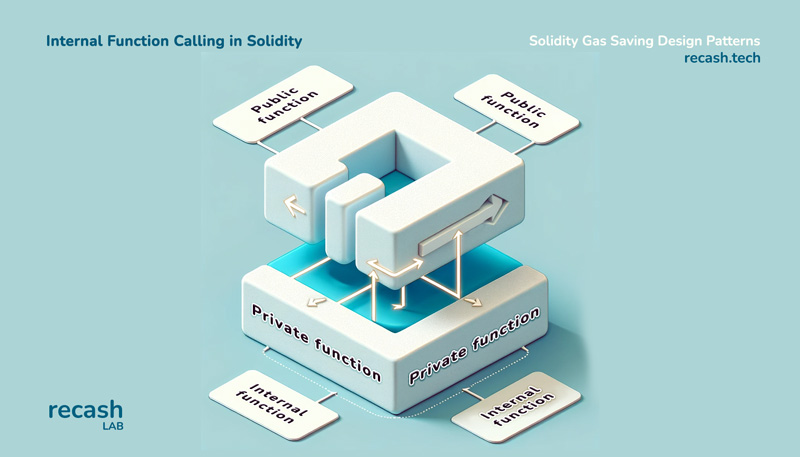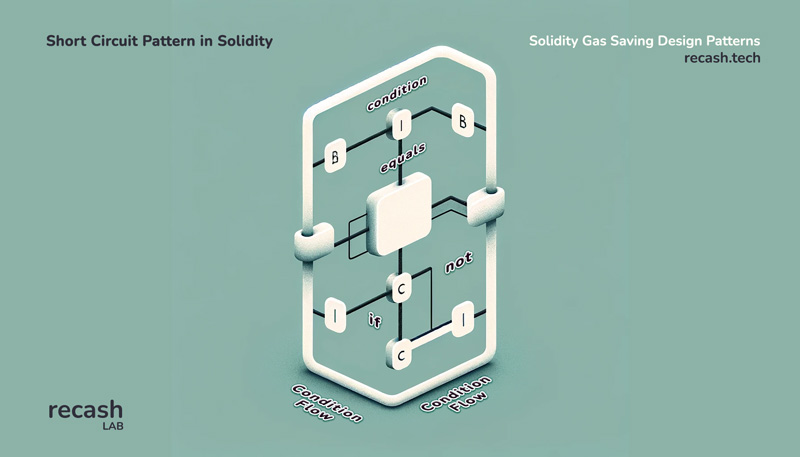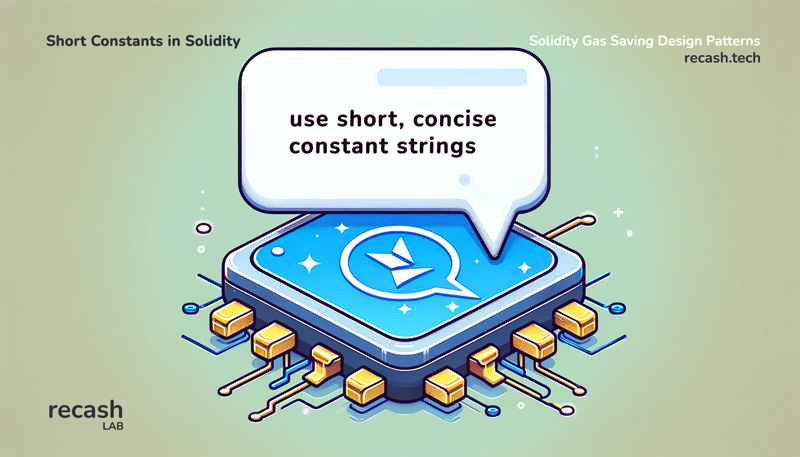In the Ethereum smart contract world, being savvy about gas efficiency isn’t just necessary. Every time you tweak a variable or call a function, it’s like ordering a latte at the blockchain café, and someone has to foot the bill. That “someone” is usually the user, and let’s face it, no one likes a pricey latte. Hence, developers are on a quest to shave off those extra gas costs, ensuring the contract’s functionality remains top-notch without making the user’s wallet weep.
This introduction delves into design patterns and best practices to enhance smart contracts’ gas efficiency. From limiting external calls and careful use of internal function calls to strategic use of libraries and managing variable types, each strategy is a step towards a leaner, meaner contract. The guide also explores the importance of avoiding redundant operations, the benefits of single-line variable swaps, and the rationale behind directly writing known values, among other techniques.
By adopting these practices, developers can turn the gas-guzzling monster of a contract into a significantly less gas-costly one for deployments and interactions. They are leading to more sustainable and user-friendly applications on the Ethereum network. This guide is your trusty compass for efficient, user-friendly smart contract development through practical examples and straightforward explanations. Buckle up; let’s make those contracts smart and economically savvy!
Limit External Calls
One notable area where costs can quickly escalate is in making external calls to other smart contracts. These calls are expensive regarding gas and introduce potential security risks, making them a double-edged sword in smart contract design.
A prudent design pattern involves minimizing the number of external calls made by a smart contract. Rather than creating multiple calls for individual pieces of data, a more efficient approach is to make a single, comprehensive call that fetches all the necessary data in one go. This method drastically reduces the gas cost associated with external calls and simplifies contract interaction, enhancing security and efficiency.

Example Scenario
Consider a decentralized application (dApp) that needs to fetch user information, account balances, and pending transactions from a data provider smart contract. Exhausting and gas-guzzling, the less efficient method would involve making separate calls for each piece of information:
// Less Efficient Approach
address dataProvider = 0x...; // Address of the data provider contract
function fetchUserData(address user) public returns (UserData) {
UserData userInfo = dataProvider.getUserInfo(user);
uint256 balance = dataProvider.getUserBalance(user);
Transaction[] pendingTransactions = dataProvider.getPendingTransactions(user);
// Process and return the data
}Instead, opt to consolidate these calls into a single function call that returns all the required data:
// Efficient Approach
function fetchAllUserData(address user) public returns (UserData, uint256, Transaction[]) {
return dataProvider.getAllUserData(user);
// The dataProvider contract has a function getAllUserData that returns all necessary information in one call
}This pattern saves gas and makes the system more robust and secure.
Internal Function Calls
The efficiency of a smart contract is not just about the logic it executes but also about how it manages its resources. A typical inefficiency arises when a contract frequently calls its own public functions. These calls are costlier than internal calls because public function parameters are copied into memory, increasing gas consumption and escalating user transaction costs.

The solution lies in the strategic use of internal functions. Internal functions in Solidity do not involve memory copies of parameters; instead, they pass parameters by reference, which is significantly more gas-efficient.
Sample Scenario
Imagine a voting system smart contract that’s like a meticulous note-taker, where each vote requires updating multiple state variables within the contract. In a less efficient design, the contract might use public functions for each update operation:
// Less Efficient Approach
contract Voting {
function updateVoteCount() public { /* ... */ }
function updateUserLastVotedTime() public { /* ... */ }
function castVote() public {
updateVoteCount();
updateUserLastVotedTime();
// More public function calls...
}
}
Switching to internal functions to updates is quicker, slicker, and easier on the gas!
// Efficient Approach
contract Voting {
function updateVoteCount() internal { /* ... */ }
function updateUserLastVotedTime() internal { /* ... */ }
function castVote() public {
updateVoteCount();
updateUserLastVotedTime();
// More internal function calls...
}
}
Fewer functions
In Ethereum, the deployment and execution of functions consume gas, making the efficiency of function implementation a critical consideration. A contract with many small, specialized functions can lead to high gas costs due to the overhead associated with each function call. On the other hand, overly large functions can make the contract challenging to test and maintain and may also increase the risk of security vulnerabilities due to complexity.
The solution lies in balancing the number and complexity of functions within a smart contract. It involves consolidating related functionalities where possible to reduce the total number of tasks while avoiding overly large functions that do too much. This balance helps optimize gas costs for deploying and executing the smart contract while maintaining clarity, testability, and security.
Sample Scenario
Consider a smart contract that manages user profiles in a decentralized application. An inefficient approach might involve separate functions for each minor update:
// Less Efficient Approach
contract UserProfile {
function updateName(string memory newName) public { /* ... */ }
function updateEmail(string memory newEmail) public { /* ... */ }
function updateAvatar(string memory newAvatar) public { /* ... */ }
// More small, specific update functions...
}
A more efficient design would consolidate these updates into a single function:
// Efficient Approach
contract UserProfile {
function updateUserProfile(
string memory newName,
string memory newEmail,
string memory newAvatar
) public {
// Update logic here...
}
// Other necessary functions...
}
This approach reduces the number of function calls required to update a user profile, thereby saving gas and simplifying the contract interface.
Use Libraries
Ethereum blockchain constrains smart contracts by gas costs incurred for every operation they perform. A smart contract attempting to handle all its tasks with its code can become bloated, leading to increased deployment and execution costs. It is where libraries come into play.

In Solidity, You can deploy a Library once and then use it by various smart contracts. Libraries are essentially reusable pieces of code. Smart contracts that use libraries do not include the bytecode of these libraries. Therefore, they can significantly reduce the gas cost of deploying large contracts. However, it’s worth noting that while libraries help reduce deployment costs, the calls to these libraries still incur gas costs and can introduce security considerations that need to be carefully managed.
Sample Scenario
Imagine a smart contract that needs to perform complex mathematical operations frequently.
In an inefficient approach, the contract might include all the necessary functions within its codebase:
// Less Efficient Approach
contract ComplexMath {
function pow(uint base, uint exponent) public pure returns (uint) {
// Complex power function implementation
}
// Other complex mathematical functions...
}
A more efficient design would leverage a math library for these operations:
// Efficient Approach
import "@openzeppelin/contracts/math/Math.sol"; // Example library
contract ComplexMath {
function pow(uint base, uint exponent) public pure returns (uint) {
return Math.pow(base, exponent);
}
// Use library functions for other complex operations
}
This approach keeps the smart contract lean and reduces the gas cost for deployment, as an external library handles the complex math operations.
Short Circuit
In Ethereum smart contracts, gas efficiency is crucial, as every operation incurs a cost. A valuable strategy to optimize gas usage involves the principle of “short-circuiting” in logical expressions. Short-circuiting takes advantage of how logical operators OR (||) and AND (&&) evaluate expressions. For OR, if the first expression evaluates to be true, the second expression is not evaluated since the overall result is already true. Similarly, for AND, if the first expression evaluates to false, the evaluation stops, as the overall result cannot be true regardless of the second expression.

Example
Consider a smart contract function that checks two conditions before executing an operation. The first condition is a simple check requiring less gas; the second is a more complex and gas-intensive operation.
In a less efficient design, the complex condition is checked first:
// Less Efficient Approach
function executeOperation() public {
if (complexCondition() && simpleCondition()) {
// Operation logic
}
}
A more efficient approach reorders the conditions, leveraging short-circuiting:
// Efficient Approach
function executeOperation() public {
if (simpleCondition() && complexCondition()) {
// Operation logic
}
}
In this efficient approach, if simpleCondition() is false, complexCondition() is never evaluated, saving gas.
Short Constant Strings
In the context of Ethereum smart contracts, efficient use of storage is crucial for minimizing gas costs. One specific area where costs can accrue is in the storage of strings. Strings, especially constant ones used for things like error messages, are included in the contract’s bytecode. Since storing data on the blockchain is expensive, long strings can significantly increase the deployment and execution costs of a smart contract.

The solution to this problem is straightforward: keep constant strings as short as possible. By ensuring that these strings do not exceed ’32 bytes`, the maximum size for a single slot of Ethereum storage, developers can optimize their smart contracts to be more gas-efficient. This practice saves storage space and contributes to overall contract efficiency by reducing the amount of data that needs to be stored and processed.
Example
Consider a smart contract function that validates user input and may revert with an error message if the input is invalid.
In a less efficient design, the error message might be long and descriptive:
// Less Efficient Approach
function validateInput(uint input) public {
require(input > 0, "Input must be greater than zero to be considered valid.");
}
A more efficient approach uses a concise error message:
// Efficient Approach
function validateInput(uint input) public {
require(input > 0, "Invalid input.");
}
This efficient design reduces the bytecode size of the smart contract, leading to lower gas costs for deployment.
Limit Modifiers
In Solidity, modifiers are a powerful feature used to change the behaviour of functions in a declarative way. However, their use comes with a trade-off regarding gas costs and contract size. Every time you use a modifier, its code is inlined into the function it modifies, increasing the bytecode size of the smart contract. This inlining process can lead to redundant code if the same modifier is used across multiple functions, thereby increasing the gas cost of deploying the contract.
The solution to mitigate this issue is to limit the use of modifiers judiciously. An effective strategy is to replace commonly used modifier logic with internal functions. Unlike modifiers, internal functions are not inlined; we call these functions separately. While this approach might be slightly more expensive in terms of gas costs at runtime due to the function call overhead, it significantly reduces redundancy in the contract’s bytecode, especially when the logic is reused multiple times, thus saving deployment costs.
Example
Consider a smart contract with several functions that require the same preconditions to be checked.
A less efficient approach might use a modifier for this purpose:
// Less Efficient Approach
modifier onlyOwner() {
require(msg.sender == owner, "Not the owner");
_;
}
function doSomething() public onlyOwner { /* ... */ }
function doSomethingElse() public onlyOwner { /* ... */ }
A more efficient design replaces the modifier with an internal function:
// Efficient Approach
function requireOwner() internal {
require(msg.sender == owner, "Not the owner");
}
function doSomething() public {
requireOwner();
// Function logic
}
function doSomethingElse() public {
requireOwner();
// Function logic
}
Avoid redundant operations
In the realm of Ethereum smart contracts, where every computation incurs a cost in gas, efficiency is vital. We might perform redundant operations, such as unnecessary checks or calculations more than once, which can significantly increase these costs without providing additional benefits. This inefficiency affects the contract’s performance and leads to higher costs for users interacting with the contract.
A practical solution to this issue is to eliminate redundant operations wherever possible. One typical example occurs when the contract’s logic double-checks conditions that have already been validated or are inherently guaranteed. A notable case is using the SafeMath library, which is designed to prevent arithmetic overflows and underflows in smart contracts. When using SafeMath, explicit checks for these conditions become redundant, as the library’s functions inherently address these concerns, thus avoiding the need for additional gas-consuming validations.

Example
Consider a smart contract function that performs token transfers and includes explicit checks for overflow in addition to using SafeMath:
// Less Efficient Approach
import "@openzeppelin/contracts/math/SafeMath.sol";
contract Token {
using SafeMath for uint256;
mapping(address => uint256) private balances;
function transfer(address to, uint256 amount) public {
require(balances[msg.sender] >= amount, "Insufficient balance");
require(balances[to] + amount > balances[to], "Overflow detected"); // Redundant due to SafeMath
balances[msg.sender] = balances[msg.sender].sub(amount);
balances[to] = balances[to].add(amount);
}
}
A more efficient design omits the redundant overflow check:
// Efficient Approach
import "@openzeppelin/contracts/math/SafeMath.sol";
contract Token {
using SafeMath for uint256;
mapping(address => uint256) private balances;
function transfer(address to, uint256 amount) public {
require(balances[msg.sender] >= amount, "Insufficient balance");
balances[msg.sender] = balances[msg.sender].sub(amount);
balances[to] = balances[to].add(amount);
}
}
This approach leverages SafeMath to ensure safe arithmetic operations without redundant checks, optimizing gas usage.
Single Line Swap
In Solidity and blockchain development, every operation that changes the state of the blockchain, such as assignments and variable definitions, incurs a gas cost. This includes seemingly simple operations like swapping the values of two variables, which traditionally involves an auxiliary variable temporarily holding one value during the swap. This traditional method results in three assignment operations, each costing gas.

Solidity offers a more efficient solution by allowing the swapping of two variables in a single line without needing an auxiliary variable. We achieve it through tuple assignments, where (a, b) = (b, a) swaps the values of a and b directly. This approach reduces the operation to a single assignment, significantly saving gas, primarily when such swaps are performed frequently within a contract.
Example
Consider a function within a smart contract that needs to swap the values of two state variables frequently:
Traditionally, one may use an auxiliary variable, which is the less efficient approach:
// Less Efficient Approach
uint a = 1;
uint b = 2;
function swapValues() public {
uint temp = a;
a = b;
b = temp;
}
Using Solidity’s tuple assignment, the swap is more efficient:
// Efficient Approach
uint a = 1;
uint b = 2;
function swapValues() public {
(a, b) = (b, a);
}
Write Values
Gas optimisation is a critical concern in developing Ethereum smart contracts, as every operation that changes the state of the blockchain incurs a gas cost, which includes transactions and function calls and the computation and storage of values within the contract. A typical inefficiency arises when contracts compute values at runtime that could have been determined at compile time.

The recommended solution is to “write” known values directly into the smart contract instead of computing them during execution. If we already know the value of a variable before deploying the contract, it’s more gas-efficient to initialise the variable with this value directly in the contract’s code. This approach eliminates the need for runtime computation, reducing the gas required for contract deployment and interaction. While this might make the code slightly less flexible or readable, the trade-off is often worth it in terms of gas savings.
Example
Consider a smart contract that requires a fixed mathematical constant for its operations:
In a less efficient design, the constant is computed at runtime:
// Less Efficient Approach
contract Calculator {
uint public constant PI = calculatePi();
function calculatePi(uint iterations) private pure returns (uint) {
// Compute Pi value
uint pi = 0;
uint multiplier = 10**18; ///@notice Scale factor to maintain precision
bool add = true;
for (uint i = 0; i < iterations; i++) {
///@notice Leibniz formula, term
uint term = (multiplier * 4) / (1 + i * 2);
if (add) {
pi += term;
} else {
pi -= term;
}
add = !add;
}
return pi;
}
}
A more efficient design initializes the constant directly:
// Efficient Approach
contract Calculator {
uint public constant PI = 3141592653589793238; // Pi value written directly with desired precision
}
This efficient approach saves gas by eliminating the need for runtime computation of the known Pi value.
Wrapping Up
As we wrap up our journey through the intricate landscape of Solidity design patterns for gas optimization, it’s clear that the art of smart contract development is as much about efficiency as it is about functionality. These patterns make for more sustainable and cost-effective applications and enhance the overall user experience on EVM-based networks. Armed with these insights and practical examples, you’re now better equipped to craft smart contracts that are both powerful and elegantly efficient. Remember, every bit of gas saved in the blockchain world is a step towards a more scalable and user-friendly decentralized future.



